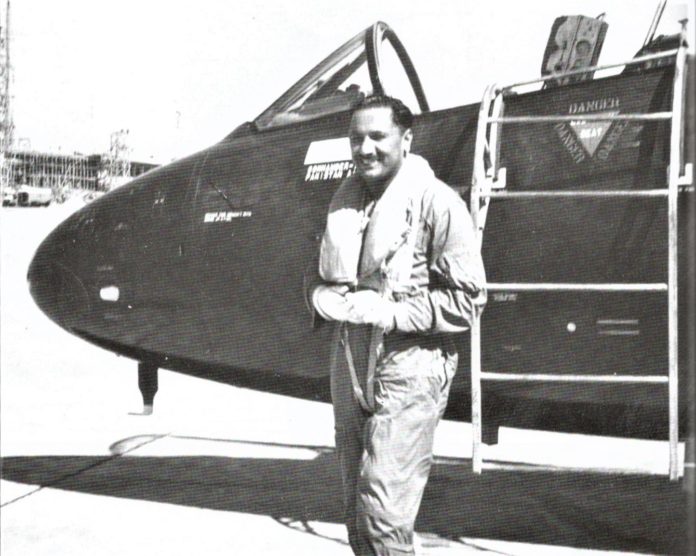Veteran politician Air Marshal (retd) Asghar Khan passed away at the Combined Military Hospital (CMH) in Rawalpindi on Friday. He was 97.
His son Ali Asghar Khan said his father died due to cardiac arrest at 6:00am at the hospital. He was admitted to the hospital a few days ago due to a chest infection. His funeral prayer will be offered at the Baloch Regiment Centre ground today (Saturday) at 2:30pm and would be laid to rest at the family graveyard at Nawansher in Abbottabad.
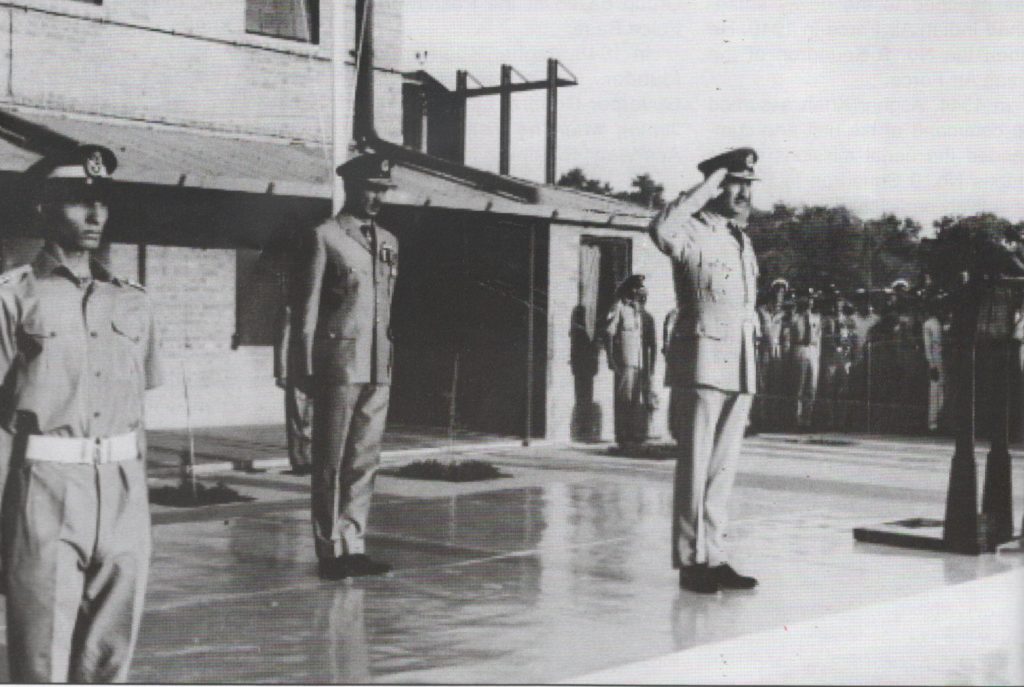
Asghar Khan was the first native commander-in-chief of the Pakistan Air Force (PAF). He was also the youngest head of PAF at the age of 35. “Air Marshal Asghar Khan headed the PAF diligently and with courage. With his leadership capabilities, he played a vital role in transforming the PAF into a modern air force,” Air Chief Marshal Sohail Aman said in a message.
“Air Marshal Asghar Khan had a good character, great commitment and professional capability,” he added. Chief of the Army Staff (COAS)General Qamar Javed Bajwa also paid tributes to Asghar Khan in a message posted on Twitter by military spokesman Major General Asif Ghafoor, calling him “iconic”.
President Mamnoon Hussain and Prime Minister Shahid Khaqan Abbasi also expressed grief over the death of Asghar Khan and prayed for eternal rest of the departed soul. Asghar Khan was born in Jammu and Kashmir on January 17, 1921. His father was Brigadier Thakur Rahmatullah Khan, a Pathan officer of the Jammu and Kashmir State Forces who was from Tirah valley in Khyber Agency.
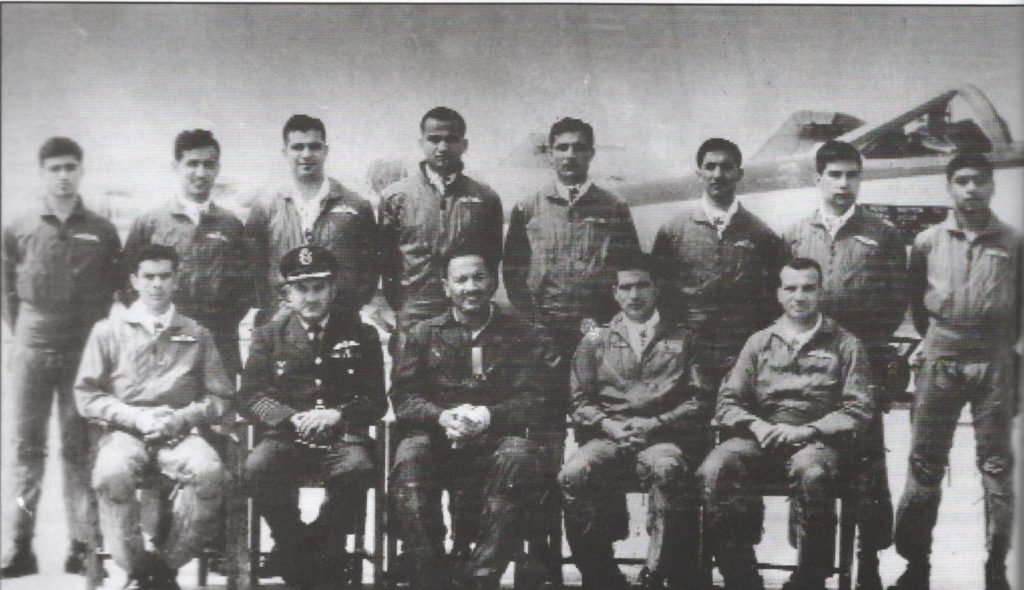
Asghar Khan and all his brothers, except his youngest brother, joined the armed forces of Pakistan, after the family relocated to Abbottabad following the partition of India. After attending the Aitcheson College Lahore, he obtained a place at the Prince of Wales’s Royal Indian Military College in 1933, and joined the Indian Military Academy in 1939.
Initially, Asghar Khan was commissioned into the Indian Army as a Second Lieutenant, starting his active duty from the Royal Deccan Horse in December 1940. However, this was short-lived as he was attached to the newly established Indian Air Force in 1940. He joined the No. 9 Squadron of the Indian Air Force.
In 1944, Asghar Khan assumed the command of his unit and commanded the aerial missions of the famous No. 9 Squadron in Burma. He actively participated in the Burma Campaign 1944-1945, directing and commanding aerial operations against the Japanese forces.
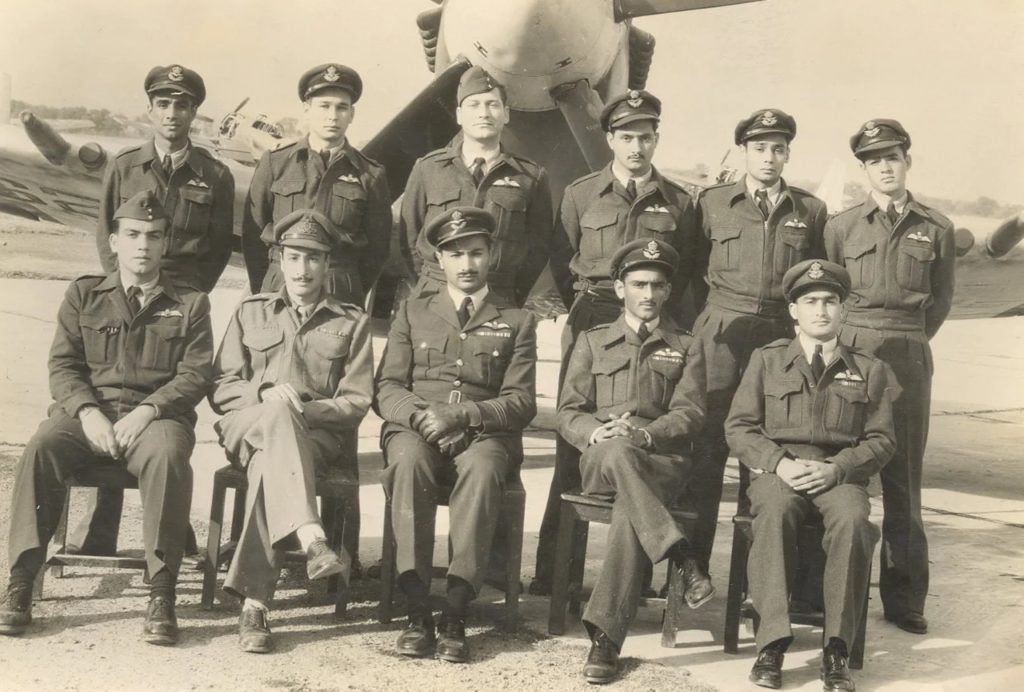
After World War II, Asghar Khan was sent to United Kingdom to join the RAF Staff College at Bracknell, where he completed a staff course. Later, Asghar Khan joined the Joint Service Defence College where he gained BSc in military ethics after submitting his thesis on actions involving the Joint Services. He conducted his post-graduate research and studies from Imperial Defence College where he was awarded MSc in military administration by the college faculty.
Upon his return, Asghar Khan was the most senior officer in the Royal Indian Air Force. He was also the first Royal Indian Air Force officer to fly a jet fighter aircraft a Gloster Meteor whilst doing a fighter leader’s course in UK in 1946.
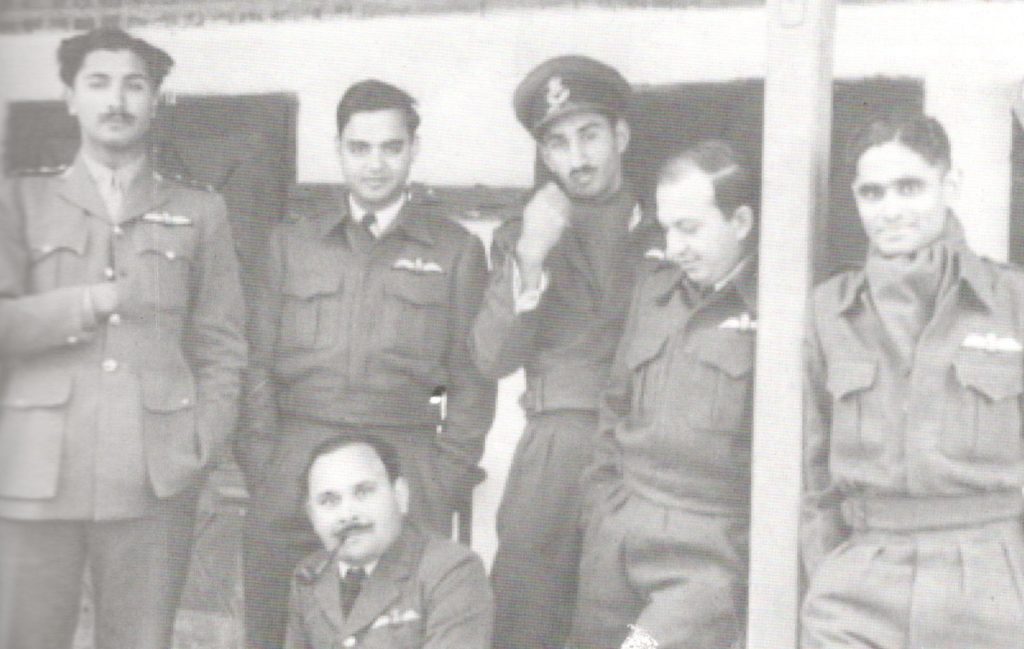
On June 7, 1947, Asghar Khan joined the sub-committee led by RAF Air Vice Marshal Allan Perry-Keene to distribute the defence assets of undivided India between newly independent India and Pakistan. After independence on August 14, 1947, Asghar Khan moved to Pakistan and Prime Minister Liaquat Ali Khan promoted him to the rank of Wing Commander and appointed him the first commandant of the Pakistan Air Force Academy at Risalpur. He was among the most senior officers of the PAF. In 1949, Asghar Khan became the first Officer Commanding of the No. 1 Stryker Group based at the Peshawar Air Force Base.
In 1948, Asghar Khan greeted founder of Pakistan and Governor-General Muhammad Ali Jinnah when he visited the PAF Academy, Risalpur.
In 1950, Asghar Khan assumed the directorship of the Directorate-General of the Air Operations (DGAO).
In 1955, he was appointed as the Assistant Chief of the Air Staff in the Air Headquarters, directing the air administration and personnel department.
In this capacity, Asghar Khan established the major units and infrastructure of the air force including the Fighter Leaders School (now Combat Commander’s School), the Air Staff College and the College of Aeronautical Engineering at the PAF Academy Risalpur. He also instituted the inspectorate directorate for the air force and initiated the tradition of regular air staff presentations.
After the retirement of Air Vice Marshal (AVM) Arthur McDonald, Prime Minister Hussain Shaheed Sohrawardy approved the appointment of Asghar Khan as the commander-in-chief of PAF. On July 23, 1957, the prime minister promoted AVM Asghar Khan to three-star rank of Air Marshal, making him the first native Air Force commander-in-chief at the age of 36. To-date, he has been the youngest to hold that rank.
Asghar Khan commanded the Air Force for eight years and took the initiative to modernise and expand the Air Force facilities, installations and equipment, and acquire fighter jets from the United States.
Asghar Khan also launched training programmes and combat course at the PAF to train fighter pilots in modern air warfare. The combat units and fighter squadrons were quickly raised, the state-of-the-art F-86 Sabres, F-104 Starfighter, B-57 Canberra, C-130 Hercules, T-33 and the T-37 Tweet aircraft were acquire.
After retirement from Air Force, Asghar Khan was employed at the Ministry of Defence and appointed as the president of the national flag carrier, the Pakistan International Airlines (PIA).
He learned to fly commercial planes. He obtained a commercial pilot licence after passing the examination from the Federal Aviation Administration of the United States. Asghar Khan introduced new uniform for the PIA air hostesses and stewards. This won words of admiration for the PIA crews at domestic and international airports.
During his tenure, PIA achieved the lowest aircraft accident rate and the highest net profit for Pakistan. The PIA at the time was a formidable competitor in the world airline business. During Zulfikar Ali Bhutto’s rule from 1971 to 1977, Asghar Khan played a significant political role as the opposition leader.
For contesting the 1977 election, Asghar Khan-led Tehreek-e-Istiqlal made an alliance with the Pakistan National Alliance (PNA) against Bhutto’s Pakistan People’s Party (PPP). It was during this period that Asghar Khan and his party faced frequent attacks by the PPP supporters and from the Federal Security Force. He was imprisoned at Kot Lakhpat and Sahiwal prisons from March to June 1977.
He contested the polls for two National Assembly seats, one from Karachi and the other from Abbottabad. Despite alleged rigging by the PPP, Asghar Khan was elected by a huge margin from both seats.
Courtesy: The News


